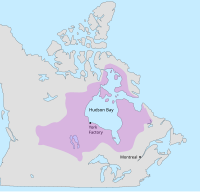History of Saskatchewan

Saskatchewan is a province in Canada that was originally inhabited by Indigenous peoples for thousands of years before the arrival of the Europeans. In the late 1600s, the Hudson's Bay Company, a fur trading company, began to establish posts in the region.
In the late 1800s, Canada became interested in settling the West and the government began to offer free land to settlers in Saskatchewan. This led to a population boom, with many immigrants coming from Europe to start a new life.
In 1905, Saskatchewan became a province of Canada. The government focused on developing agriculture, which became the backbone of the economy. Wheat, canola, and other crops are still major exports from the province today.
The province has a complex history with the Métis, a group of people with mixed Indigenous and European ancestry. In 1885, the Métis led an armed resistance against the Canadian government in what is known as the Northwest Rebellion. The rebellion was ultimately unsuccessful and many Métis were displaced from their land.
Today, Saskatchewan is home to many Indigenous peoples and has a rich cultural heritage. The province has also faced challenges, including the legacy of residential schools and environmental issues like climate change and resource extraction. However, the people of Saskatchewan are working to create a bright future for themselves and their communities.
In the late 1800s, Canada became interested in settling the West and the government began to offer free land to settlers in Saskatchewan. This led to a population boom, with many immigrants coming from Europe to start a new life.
In 1905, Saskatchewan became a province of Canada. The government focused on developing agriculture, which became the backbone of the economy. Wheat, canola, and other crops are still major exports from the province today.
The province has a complex history with the Métis, a group of people with mixed Indigenous and European ancestry. In 1885, the Métis led an armed resistance against the Canadian government in what is known as the Northwest Rebellion. The rebellion was ultimately unsuccessful and many Métis were displaced from their land.
Today, Saskatchewan is home to many Indigenous peoples and has a rich cultural heritage. The province has also faced challenges, including the legacy of residential schools and environmental issues like climate change and resource extraction. However, the people of Saskatchewan are working to create a bright future for themselves and their communities.
Related topics others have asked about:
